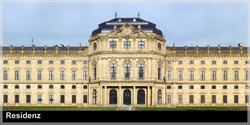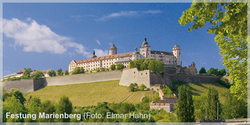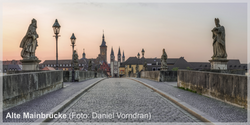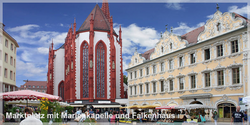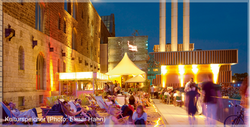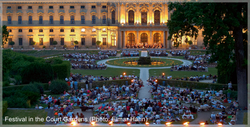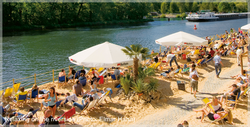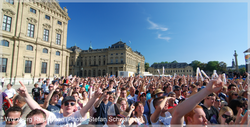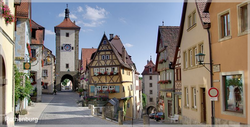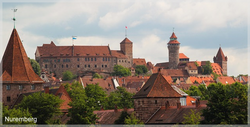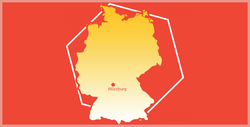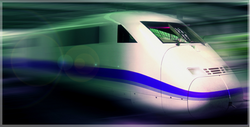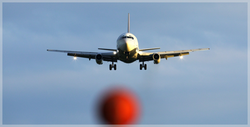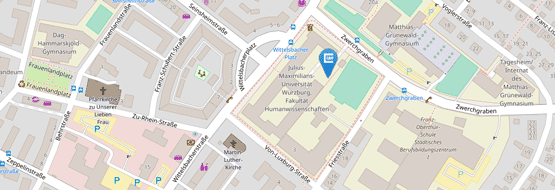The City of Würzburg
Würzburg is a city of about 125,000 people in the region of Franconia in Northern Bavaria. With a history that dates back more than 1,300 years, Würzburg is offering a lot of famous sights, above all the UNESCO World Heritage Site Würzburg Residence. Founded in 1402, the University of Würzburg is among the oldest universities in Europe. More than 30,000 students make for a vivid city with a rich and vivid cultural, pub and club scene.
Sights
Würzburg is offering a lot of famous attractions. Without a doubt, the Würzburg Residence, built in the early 18th century and a UNESCO World Heritage Site since 1981, is the most famous attraction of the city.
Other top sights are the Fortress Marienberg which sits above the city and the Old Main Bridge ("Alte Mainbrücke") which is the best place to enjoy a glass of Franconian wine. Würzburg's market place boasts the St. Mary's Chapel ("Marienkapelle") and the House of Falcon ("Falkenhaus"), while the Pilgrimage Church "Käppele" offers a great view of the old town.
Many other churches (most notably the main cathedral), courtyards, fountains and town houses can be found in the city. Another highlight is the Old University which was built in 1582 and today houses the University of Würzburg's law faculty.
Culture & Lifestyle
Würzburg offers countless opportunities to relax and enjoy cultural activities. There are several beer gardens, most of them on the riverside, and large parks to enjoy the summer - above all the Ring Park which meanders around the old town. In the Court Gardens of the Würzburg Residence, you can walk in the footsteps of the baroque prince-bishops.
Being a university city, lively Würzburg boasts numerous bars, cafes, pubs and clubs. First and foremost, Würzburg and the region are famous for the Franconian wine. There are so many wine festivals in and around the city that there even exists a dedicated Würzburg wine festival calendar.
Moreover, Würzburg is the cultural center of the region with the Mainfranken-Theatre, numerous smaller stages that have been established in the city and many museums. Besides, Würzburg is host to several famous cultural and music festivals. Movie buffs can enjoy open air screenings on the fortress hill.
The Region
Around Würzburg, there are many vineyards and numerous small, ancient villages. Since many of them lie on the Main, they invite you to relax and walk on the riverside. Veitshoechheim, about 15 kilometers from Würzburg, is home of the Summer Residence of the prince-bishops of Würzburg. Rothenburg with its world-famous medieval Old Town and the city of Nuremberg are only a 60 minute ride away.
How to reach Würzburg
Würzburg is outstandingly well connected to all means of transport. The main station is an ICE node so that you can reach the city easily from all major European cities. For example, a train ride from Munich to Würzburg takes less than 2 hours. Berlin and Hamburg can be reached in 4 hours, Amsterdam and Paris in about 6 hours, Prague and London in 8 hours and Warsaw in 9 hours.
The next airports are Nuremberg (NUE) and Frankfurt am Main (FRA). Both airports can be reached in less than 90 minutes by train. The airports Düsseldorf (DUS), Köln/Bonn (CGN), Munich (MUC) and Frankfurt-Hahn (HHN) are about 2:30 to 3:30 hours, Munich-West (FMM) 4 hours away. Please see Deutsche Bahn for details.
In addition, the city is connected to three highways (Autobahn): With the A3 and A7, the main east-west and the main north-south axis pass through Würzburg. The A81 starts near Würzburg and leads to Switzerland. In the city itself there is a dense tram and bus network, reaching out to the region, too.
Alumni of Würzburg University
The Julius-Maximilians-University (JMU) Würzburg is one of the oldest universities in Europe and rich in tradition. With 14 Nobel Prize winners, the JMU belongs to the finest research institutions in Germany. See a short list of the well-known Alumni and researchers related to the university:
- Alois Alzheimer, German psychiatrist and neuropathologist, identified Alzheimer’s disease
- Jean-Marc Ayrault, Prime Minister of France from 2012 to 2014
- Thomas Bach, President of the International Olympic Committee
- Ernst Bloch, German Marxist philosopher
- Harald zur Hausen, German virologist, Nobel Prize in Physiology or Medicine 2008
- Werner Heisenberg, German theoretical physicist, Nobel Prize in Physics 1932
- Klaus von Klitzing, German physicist, Nobel Prize in Physics 1985
- Oswald Külpe, German structural psychologist, founder of the Würzburg School of Psychology
- Wilhelm Conrad Röntgen, German physicist and detector of X-Rays, Nobel Prize in Physics 1901
- Rudolf Virchow, German doctor, anthropologist, pathologist, prehistorian, biologist, known as "the father of modern pathology"


